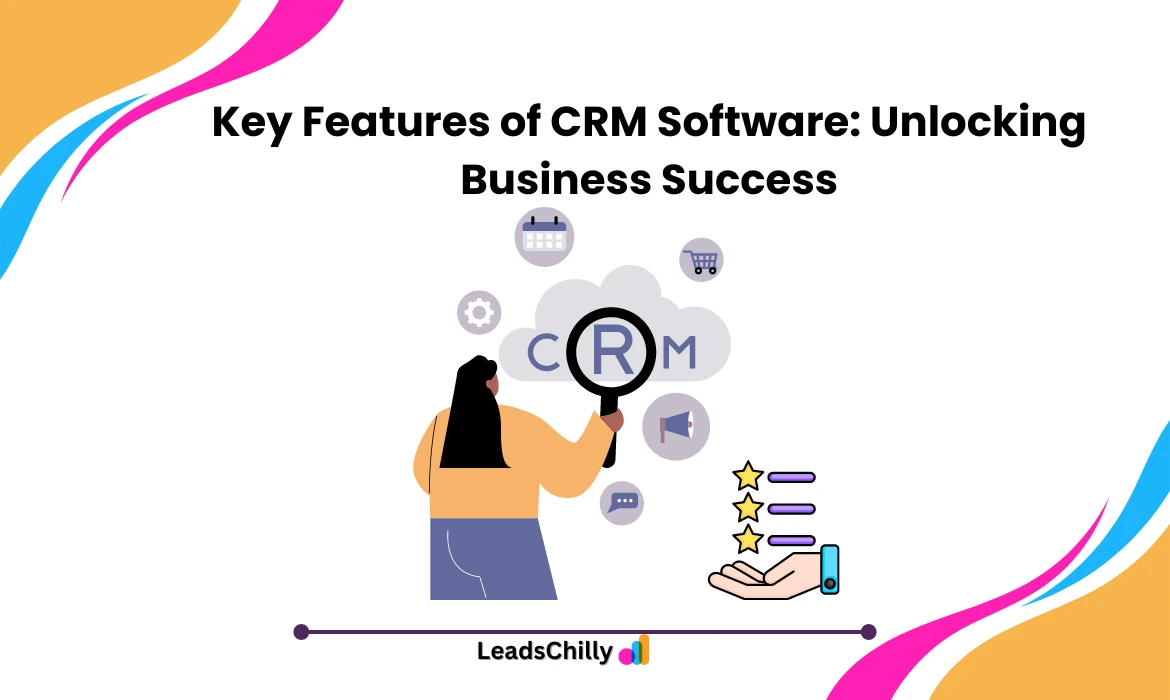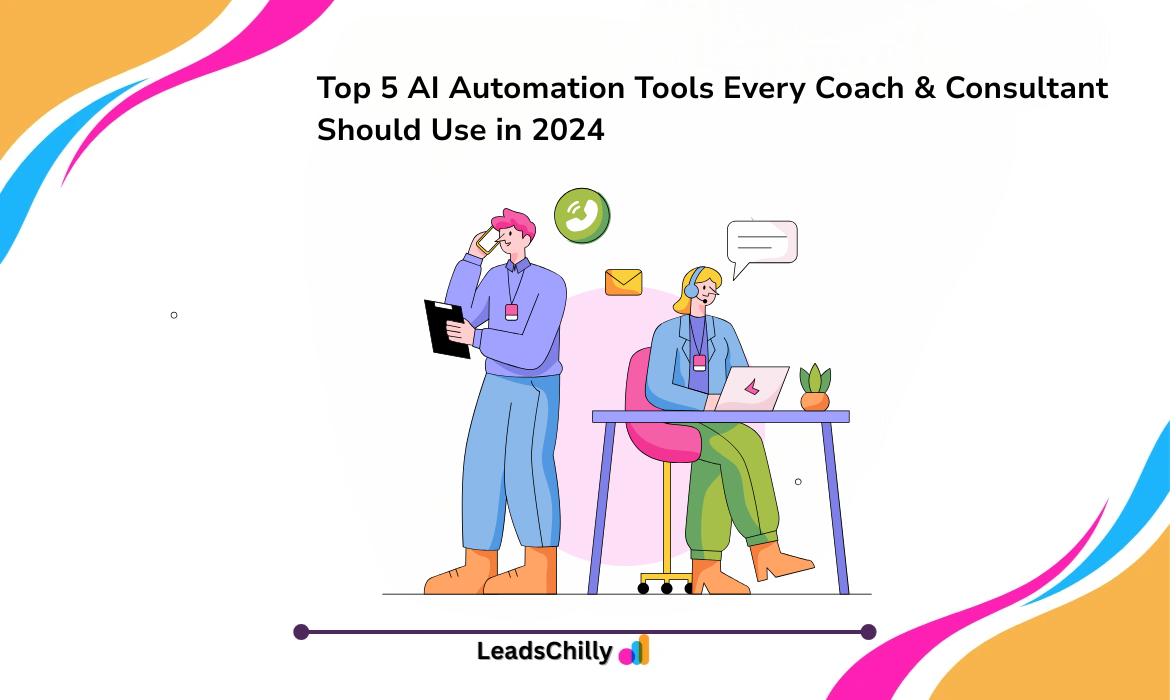Looking for the perfect CRM solution to streamline your business? You’re in the right place! The key features of CRM software can make or break your customer relationships, efficiency, and, ultimately, your success. Sales automation is the most requested feature by buyers. 98% of buyers have marked the following as an important CRM feature: contact management, sales pipeline management, lead management, and workflow management.
In this guide, we’ve narrowed down the best CRM features you should keep an eye out for. Whether you’re a small startup or a well-established enterprise, finding the right CRM software can make all the difference in how you manage your customer relationships and grow your business.
Let’s dive in and discover the key elements that will elevate your customer relationship management game and help you succeed.
What Are the Key Features of CRM Software?
CRM software is a multifaceted tool designed to address various aspects of customer relationship management. Here are the Key Features of CRM Software that you should be aware of:
1. Contact Management
Contact management is the heart of any CRM system. It allows businesses to store and manage customer information, including names, addresses, phone numbers, and interaction history. This feature enables sales and marketing teams to have a 360-degree view of each customer, ensuring personalized communication and better relationship-building.
How does contact management improve customer relationships in CRM software?
Contact management centralizes all customer data in one place, enabling teams to access a complete history of interactions. This helps in delivering personalized service, which fosters stronger customer relationships and loyalty.
What are the benefits of using CRM software for contact management?
The primary benefit is efficiency. By organizing and tracking all customer information, CRM systems reduce the chances of errors and missed opportunities, leading to more effective communication and follow-up.
2. Sales Automation
Sales automation helps streamline and automate the sales process, from lead generation to closing deals. This feature reduces the manual effort required to manage sales activities, allowing your sales team to focus on what they do best—selling. Automated tasks include follow-up emails, task reminders, and sales pipeline management, ensuring nothing falls through the cracks.
How can sales automation increase productivity?
Sales automation tools take over repetitive tasks, such as sending follow-up emails or scheduling calls, allowing your sales team to focus on higher-value activities like closing deals, ultimately boosting productivity.
What tasks can be automated within CRM software’s sales automation feature?
Common tasks include lead scoring, email drip campaigns, and pipeline management. Automating these tasks ensures consistency in communication and reduces human error.
Why is sales automation crucial for scaling your business?
As your business grows, manually managing every aspect of sales becomes impractical. Sales automation scales with your business, ensuring that no lead is overlooked and every opportunity is maximized.
3. Marketing Automation
Marketing automation is a game-changer for businesses looking to scale their marketing efforts. This feature allows you to automate repetitive marketing tasks such as email campaigns, social media posting, and lead nurturing. By targeting the right audience with personalized messages, marketing automation not only saves time but also boosts engagement and conversion rates.
How does marketing automation enhance lead generation?
Marketing automation allows you to nurture leads with personalized content at each stage of the buyer’s journey, increasing the chances of conversion by providing relevant information when it matters most.
What are the most effective marketing automation strategies within CRM software?
Effective strategies include segmentation, personalized email campaigns, and automated social media posting. These tactics ensure your message reaches the right audience at the right time, improving overall marketing ROI.
How can CRM software’s marketing automation integrate marketing efforts for better results?
CRM software integrates with marketing tools to provide a unified platform for tracking customer interactions. This allows for more coordinated campaigns and a seamless customer experience from initial contact to conversion.
4. Customer Service and Support
CRM software isn’t just for sales and marketing; it’s also a powerful tool for customer service and support. With features like ticketing systems, customer self-service portals, and real-time chat, CRM software ensures that your customers receive timely and effective support. This leads to higher customer satisfaction and long-term loyalty.
How can customer service and support improve efficiency?
CRM systems streamline customer service by organizing all customer interactions in one place, enabling support teams to resolve issues faster and more effectively, leading to improved customer satisfaction.
What are the key features of CRM software for customer support?
Essential features include ticket management, customer self-service options, and integrated live chat. These tools help in managing and resolving customer issues efficiently, enhancing the overall service experience.
Why is customer service integration?
Integrating customer service with CRM provides a complete view of the customer journey, allowing support teams to anticipate issues and provide proactive solutions, thereby improving customer retention.
5. Analytics and Reporting
In today’s data-driven world, the ability to track and analyze customer interactions is invaluable. Analytics and reporting features in CRM software provide insights into customer behavior, sales trends, and marketing effectiveness. With these insights, businesses can make informed decisions, optimize strategies, and ultimately drive growth.
How can CRM software analytics as a key feature improve decision-making?
CRM analytics provide actionable insights by tracking key performance metrics, allowing businesses to make data-driven decisions that enhance efficiency and profitability.
What metrics should you track in CRM software’s analytics feature?
Key metrics include customer lifetime value (CLV), conversion rates, and sales cycle length. Monitoring these metrics helps in identifying areas for improvement and optimizing strategies.
Why are analytics a crucial for business success?
Analytics enable businesses to understand customer behavior, refine marketing strategies, and improve sales processes, which are all critical for staying competitive and driving growth.
Quick Overview Table: Key Features of CRM Software
|
Feature |
Benefit |
Why It Matters |
|
Contact Management |
Centralizes customer data |
Enhances personalized communication |
|
Sales Automation |
Automates sales tasks |
Increases sales team productivity |
|
Marketing Automation |
Streamlines marketing efforts |
Boosts engagement and conversion rates |
|
Customer Service |
Improves customer support |
Increases customer satisfaction and loyalty |
|
Analytics and Reporting |
Provides actionable insights |
Drives data-informed decision-making |
How Does CRM Software Benefit Your Business?
CRM software benefits businesses by centralizing customer information, automating tasks, and providing actionable insights. This leads to increased efficiency, better customer relationships, and more informed decision-making. By having a comprehensive view of customer interactions, businesses can tailor their strategies to meet customer needs, improve service delivery, and ultimately drive growth.
Let’s explore the key benefits that CRM software can bring to your organization.
What Industries Can Benefit the Most from CRM Software?
CRM software is versatile and can be tailored to fit the needs of various industries. Whether you’re in retail, healthcare, finance, or manufacturing, CRM tools can help you manage customer relationships more effectively. Industries with high customer interaction, such as sales-driven organizations, can particularly benefit from CRM solutions.
In sectors where customer experience is critical, CRM software ensures consistent, personalized, and timely interactions that enhance customer satisfaction and loyalty.
How Can CRM Software Enhance Customer Experience?
A well-implemented CRM system can significantly enhance the customer experience by providing personalized interactions, timely responses, and a seamless journey from inquiry to purchase. CRM software allows businesses to track customer preferences, past interactions, and feedback, enabling them to offer tailored solutions that meet individual needs.
This personalization fosters stronger relationships, leading to higher customer satisfaction and long-term loyalty.
What Are the Cost Benefits of Implementing CRM Software?
While the initial investment in CRM software may seem significant, the long-term benefits far outweigh the costs. By automating processes, reducing manual errors, and improving overall efficiency, CRM software can lead to substantial cost savings.
Additionally, the ability to generate higher-quality leads, shorten sales cycles, and close more deals directly impacts the bottom line, making CRM software a valuable investment for sustainable business growth.
Why should you invest in CRM software?
You and your hardworking team have invested time and energy to start and grow your business. You’ve created a unique product or service, built a loyal customer base, and developed sales pipelines and marketing plans. However, as your business grows, keeping on top of all these tasks can become complex and time-consuming.
CRM software can help streamline all business processes to help you and your team focus on taking your company to the next level. What you need from a CRM solution depends on your business’s specific requirements, so talk to your departments to determine what features will best help them do business more efficiently. Investing in the right CRM software will optimize your teams’ performance, boost sales, increase customer satisfaction and help your business flourish.
Frequently Asked Questions
CRM software helps businesses manage customer interactions, streamline processes, and improve customer satisfaction.
Most CRM systems offer integrations with email, marketing, and accounting tools, providing a unified platform for all customer-related activities.
Yes, CRM software is scalable and can be customized to meet the needs of small businesses, offering them the same benefits as larger enterprises.
The cost of CRM software varies depending on the features and number of users, but many providers offer tiered pricing or even free trials to get started.
Absolutely. CRM software can be tailored to fit the specific needs of your business, from custom fields to unique workflows.




Comments are closed.